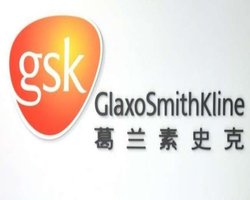Following a bribery scandal, GSK sales in China fell 61% during the third quarter of 2013. Experts wonder whether the company may be able to recover in the region from such a fall.
British pharmaceutical giant, GSK (GlaxoSmithKline) issued a statement in July 2013 that some of its executives had acted “outside of Chinese law”.
The country’s Ministry of Public Security were investigating claims that four GSK executive employees had been using a network of over 700 travel agencies and other companies to bribe government officials, doctors and hospital staff.
Total bribes were valued at 300 billion yuan ($490 million).
According to Chinese authorities, these illegal activities had been going on since 2007.
GSK sales in China affected overall sales in Asia-Pacific
GSK reported that EMAP (emerging markets Asia-Pacific) and Vaccine sales were down 9%, driven by the timing of vaccine tender shipments and the 61% fall in sales in China.
GSK says it continues to cooperate with Chinese authorities and is fully committed to supplying its products to patients in China.
In an online communiqué, GSK wrote:
“At this stage, it is still too early for us to quantify the longer-term impact of the investigation on our performance in China. Excluding the decline in China sales, our EMAP Pharmaceuticals business grew 5%.”
Sir Andrew Witty, Chief Executive of GSK, said that the idea of GSK ever pulling out of China is “out of the question”, according to the BBC.
Market Business News reported in August 2013 on several Western companies being investigated for bribery, fraud and illegal activities in China:
- Sanofi – the French pharmaceutical multinational was under investigation after a local Chinese newspaper published allegations of bribery. The company allegedly paid 1.69 million yuan ($274,000) to 503 doctors and staff in 79 hospitals in Beijing, Shanghai and Gangzhou.
- AstraZeneca PLC, another multinational pharmaceutical company, based in the United Kingdom, said that Chinese regulators questioned its employees.
- Novo Nordisk A/S, a Danish company, said that officials entered its production plant in Tianjin city and carried out several interrogations. No subsequent accusations were made.
- Novartis AG, the Swiss pharmaceutical giant said its eye-care unit, Alcon, was accused in September of bribing staff in over 200 hospitals in China. One month earlier the same company had been accused of bribing doctors to promote its drugs, according to another Market Business News report.
- Eli Lilly, based in Indianapolis in the United States, was accused by a Chinese newspaper of bribing doctors to the value of 30 million yuan ($4.9 million).
In most of these cases, initial reports come from the same newspaper, the Guangzhou-based 21st Century Business Herald, which nearly always quotes ex-employees who wish to remain “anonymous”.
GSK has over 7,000 staff working in five factories and a research center in China.

